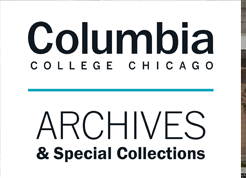

Files
Download Audio (288.4 MB)
Loading...
Description
Raised in Chicago by a single immigrant mother who left their home country for a chance to give their child more opportunities, Natalie Murillo fell in love with music at the age of 3. Grew up involved in their school orchestra and marching band as an adolescent. Went on to study music production and engineering at Columbia College, but that was short lived due to the 2008 recession and their mother’s immigration status did not allow her to take out a student loan. She decided to continue their artistic practice independently as “La Spacer,” and started collaborating with performance artists, visual artists, and multi-disciplinary graduates mainly from SAIC. La Spacer was determined to build her own dream production studio. Determined, bit by bit she built her studio using drum machines, synthesizers, and a vocal booth, and began composing, producing, and performing their work. In 2015, she co-founded “TRQPITECA,” a Chicago-based artist duo and production company creating spaces and opportunities for local and international artists who identify as queer (LGBTQIA+), ALAANA, and/or allies to experiment and thrive.
Publication Date
2014
Publisher
Columbia College Chicago
City
Chicago
Keywords
House Music, Chicago, Illinois, artist, performer, TRQPITECA
Creative Commons License

This work is licensed under a Creative Commons Attribution-NonCommercial-No Derivative Works 4.0 International License.
Disciplines
African American Studies | Gender and Sexuality | History | Latina/o Studies | Music | Regional Sociology
Recommended Citation
Salkind, Micah, "Interview with Natalie “La Spacer” Murillo" (2014). Chicago House Music Oral History Project. 37.
https://digitalcommons.colum.edu/house/37



Comments
This interview is part of the Chicago House Music Oral History Project held at Columbia College Chicago and was captured for Do You Remember House? Chicago's Queer of Color Undergrounds authored by Micah Salkind and published in 2019. The work integrates histories of music, production, DJing, dance, fashion, and slang and addresses movements that led to the development of Chicago's house music.